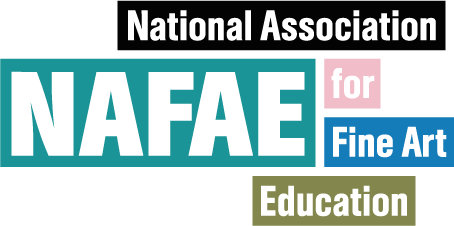Abstract
This presentation considers:
Partnership roles between art schools and the heritage sector.
The potential of artists in supporting communities, more broadly, to develop deeper understanding of shared heritage, their visibility within it, therefore themselves and their role in democratising (access to) heritage.
How artists understand the role of communities in their practice, exploring place from different creative perspectives.
Drawing upon empirical data, the presentation reflects upon:
Creative processes that consider inclusion and access, to directly engage students with ‘audience’, ‘place’ and ‘environment’.
The application of reverse processes to facilitate and enable creative responses that develop fresh understanding, skills, and self-knowledge.
Rising Stars is a partnership between Northumbria University and the National Trust at Seaton Delaval Hall and forms part of The Curtain Rises project. The partnership is an opportunity for the National Trust to work collaboratively with students and give them valuable experience working across a range of areas in the heritage sector. Working with Northumbria University enables the National Trust to develop its community offer.
Using the Rising Stars: Participation and Engagement case study as an example of a wider partnership encouraging openness growth and creativity, this describes the journey of Level 4 BA Fine Art students and how partnership working can be adapted to address curriculum requirements, frame delivery, and support students to develop as socially engaged practitioners and to better understand context.
The Rising Stars Participation and Engagement brief has supported and recontextualised ways to engage with place, heritage, and environment, by offering innovative, practice-led approaches that inspire audience with different ways to access heritage & culture as participants. Using a ‘Live Brief’ as a tool to enhance research skills, promote collaboration and develop transferable ‘soft skills’, this gives positive examples of students creating connections and collaborations that support employability, activate creativity and expediate ownership of learning.
Following a brief presentation, we wish to stimulate debate to further explore the role of heritage and cultural sector and academic institutions in developing approaches to art education that not only develop artistic practice, soft skills but also the confidence and capability to work with communities to support democratising heritage and culture.
How can art schools / universities strengthen and promote cultural engagement and participation?
How do site-specific and collaborative ways of working change perceptions and develop innovation?
How can partnerships between art schools and heritage and cultural sector create space for students to understand the role of uncertainty and flexibility in developing their creative process and soft skills?
How can partnerships between heritage and cultural sector and art schools explore the role of art in communities in understanding and accessing heritage and in turn provide artists in education with the experience and skills to do this?
Bios
Sarah Bradbury is a strong advocate for creative approaches to working with communities to support and develop an accessible and visible heritage and culture with multiple narratives that foster empathy and debate. Sarah is a Community and Participation Consultant at the National Trust working in the North. She is also a freelance consultant working with businesses and institutions to work with the people in their communities.
Sarah’s previous roles include, Partnerships Coordinator at Seaton Delaval Hall, National Trust. Producer (Communities) at BALTIC centre for Contemporary Art, Gateshead. Sarah was a Fine Art Graduate from Loughborough University in 2005 and continues to use the skills she developed there in all aspects of her life.
Judy Thomas completed her practice-based PhD at Northumbria University, with her area of study concentrating on the Artist Facilitator role and collaborative practice within the context of artist- led learning programmes. She is Programme Leader for the MA Contemporary Arts and Education programme at Northumbria University. She also teaches on the BA Fine Art programme.
Her previous roles include Learning Manager at Creativity, Culture and Education, Learning Manager at Waygood and Programme Manager (Learning and Inclusion) for Liverpool Biennial. Before this she was Acting Head of Education & Public Programme for BALTIC Centre for Contemporary Art, Gateshead.

